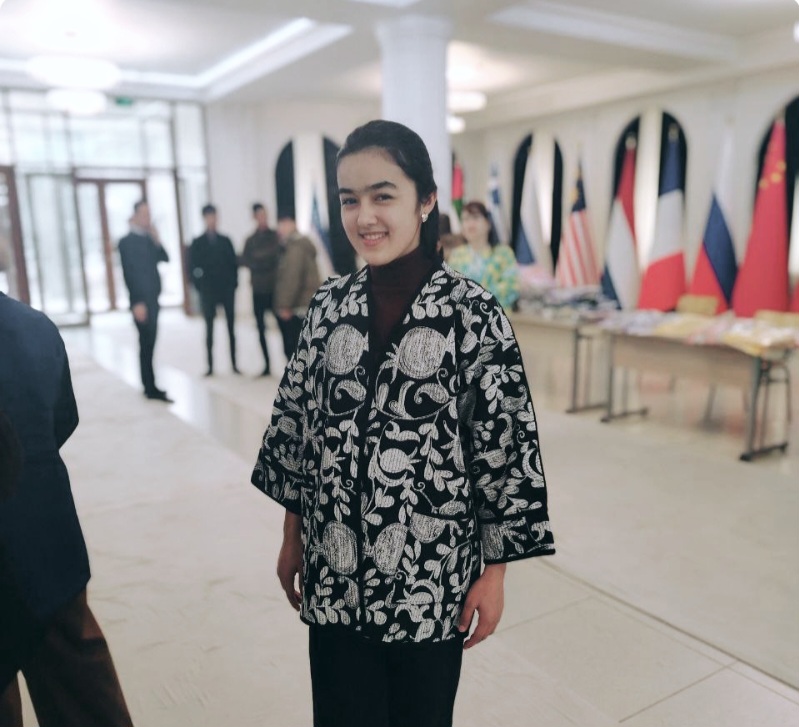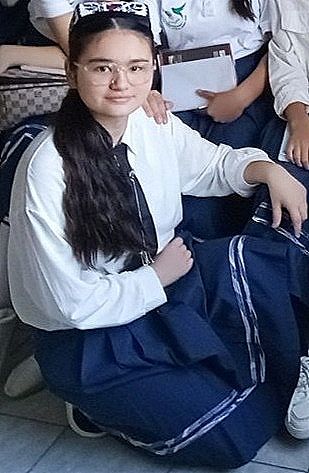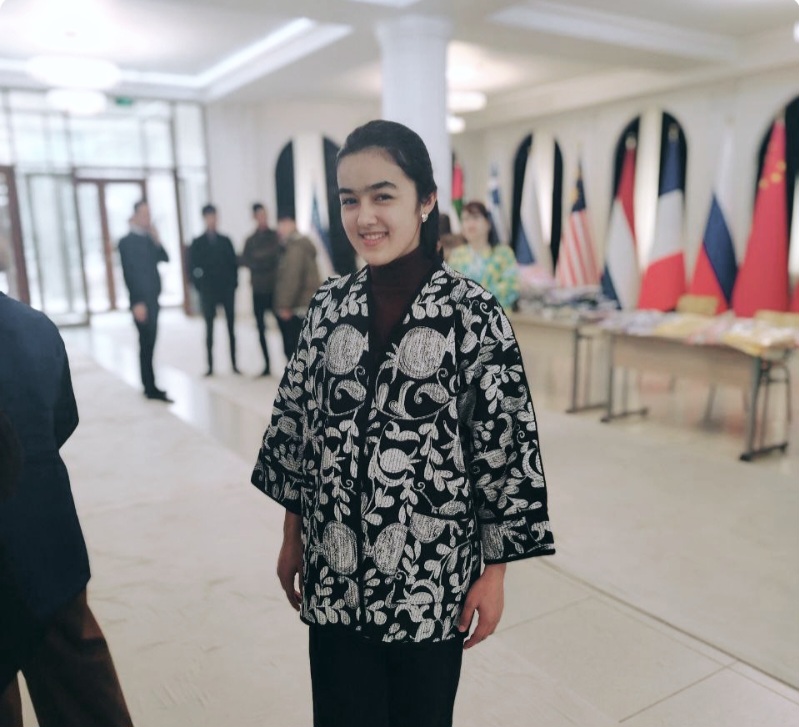






ALEXANDER ARKADYEVICH FEINBERG
If you wander lost in the darkest night,
Do not despair at the cruel and bitter weather.
For darkness never lasts as your sole companion,
There’s a fire burning, flickering in the distance.
This fire, as you roam, lost and weary,
Will give you warmth and kindness, freely offered.
Your hope and faith will surely return,
For fortune never turns its back forever.
If the biting wind extinguishes the flame,
And you suddenly find yourself back in the dark,
The last resort is a simple act –
Stop, and kindle a bonfire without delay.
Carefully strike a match in your hand,
Prepare to light a fire, drawing on your tobacco.
In the pathless wilderness, ignite a bonfire, start a blaze,
Become a fire yourself for someone in need.
Translation by Shukurilloyeva Lazzatoy
spin the attraction I believed it when you said: “Stay away from Okies.” “Stay away from swabbies busting bottles off the rail.” “Don’t bug Carlos.” Tonight the perseids will glitter for an hour, sputter. disappear. I believed it when you said you’d find a job tomorrow. everybody’s falling Sure, my palms were sweating. The way she smiled at you, the way she took your hand and placed it on her hip. The way you drifted from the orbit of relationship. This is how it works, right? One stacked in the warp and reeling. The other standing still.

Kathleen Hellen is the recipient of prizes from the H.O.W. Journal and Washington Square Review. Her debut collection Umberto’s Night won the poetry prize from Washington Writers’ Publishing House. Featured on Poetry Daily and Verse Daily, Hellen’s work has been nominated multiple times for Best of the Net, the Pushcart and recently Best American Short Stories. She is the author of The Only Country Was the Color of My Skin, Meet Me at the Bottom, and two chapbooks.She lives in Baltimore.

Village morning Morning, the spring's canopy shutter, The heart is ready for the feeling of purity. Simple people, simple people, The bag turns the black heart into colors. I'm satisfied with sincere tunes today, The sound of the swallow decorates my heart. Walking in the city streets, I found out that The value of such stones is like a stone. By a rightful mistake of fate, I'm in love with basil today. That another place is like this, Majnuntol, you didn't say, why didn't you say. My magical world with moving walls, The rooster crows in the early morning. After all, you are honest, you are wonderful, The rustling of trees, the dawn of my village! Nilufar Anvarova, a student of the 8th grade of the creative school named after Erkin Vahidov, Margylan city.
The Royalties
He’s looking through
The 2024 tax form
That documents
The royalties
From his first book
It’s been a while
Since the book
Was released
And he hasn’t
Thought about sales
In a long time
He made less than
Ten bucks
Last year
Obviously he’s
An underground favorite
Poised for posthumous fame.
Taylor Dibbert is a poet in Washington, DC. He’s author of, most recently, “Takoma.”

ALEXANDER ARKADYEVICH FEINBERG
Tell me, driven by dreams and faith,
You’ll never turn back now, will you?
You’ve left your shore, far behind,
Seeking only a distant miracle?
Where to? Like a flame beyond reach,
Your dream will never be fulfilled.
A miracle is always a wave,
While the shore is ever the land.
Translation by Shukurilloyeva Lazzatoy
*****
Bref catéchisme
Tu trouves Dieu dans chaque pas,
Homme saint ! Et toi femme sainte,
Tu l’aimeras vie ou trépas,
Jeune ou vieille, Soeur ou enceinte…
Quant à moi, poète à Paris,
Je ferai de mon mieux pour Lui !
Ce sera peu, tant m’éblouit,
Son ange en mon coeur qui sourit…
Peu oui ! Mais déjà, quelques pages,
Pour dire qu’il faut être sage,
Comme nous l’enseignait Saint Paul…
Pour chanter ceux qui dignes, calmes,
Moururent pour Lui sous la palme,
Ou prirent sa croix à l’épaule…
*****
Jésus à Paris
Paris – qui est ma ville, aux mille et cent églises,
Abrita, on le sait, la nuée des oiseaux,
Elle accueillit aussi la foule des badauds,
Qui arpentent matin, soir, nuit, jour, ses rues grises.
J’y vécus ! Oui : enfant, j’y fus, j’y suis encore,
Aujourd’hui je ne sors plus tant, pour mieux prier,
Hier quatre cent coups, pour l’heure l’encrier,
Autrefois les amours… Cité : scène ou décor.
Il est une légende et je vais vous la dire :
Jésus habite ici, avenue des Lilas,
Oui, le Fils de Dieu même, a choisi d’être là.
Certains racontent l’avoir vu – ils lui parlèrent,
Des nuages du ciel, du soleil, du bel air…
Il est l’esprit des lieux, astres, zénith, nadir.
*****
Poème de reconnaissance
Oh quel bonheur ! Oh quel bonheur !
Viens à moi sans cesse, oh l’Amour !
Oui je l’ai dit je connus jour !
À ton flanc n’ai sèvre en mon coeur !
Les songes infinis s’ébrouent…
Dans l’eau lacs clairs, bleus lagons, mers !
Oh notre Père un rien te voile,
Bénis la Sainte et toi l’étoile !
Le verger, la Lune et la Terre…
Vous me fîtes page de cour,
Et d’heurs en ors votre prière,
Passion, infini mystère,
Me porte aux ailes de vos Anges…
Que j’adorerai pour mélange,
D’une vie donnée en retour,
Aux yeux bleu de nuit, mon secours,
Enfant, nourrisson en vos langes.
*****
Comme une Comptine
Les pastels de bleus, d’ors, habilleront le Ciel,
Et partout sonne le refrain – bourdon de miel…
La musique en tout sens étalée là, éclate,
Et règne sans dessus – dessous – mer disparate.
Je me promène allant dépenser du tabac,
Et d’un air sobre, lent,
Marche au pas de combat…
L’homme est un animal ! Mystère, Loi des Fables.
Il vivra vieux, pensif et assis à sa table,
S’il connaît ce poncif :
« Au carrefour un arbre,
C’est ainsi !
Un Platane !
Je ne suis pas de marbre…
Voici,
Braire mon âne. »
*****
Esther
Ou : Petit Pied d’argent
Elle était là, mais oui Venise,
Venise est elle sans ses filles ?
Par le vieux Ghetto et l’eglise,
Oui juste là, Judeira,
Le trois. Et je la vis au bras,
D’une fontaine où brille l’eau,
Versée par un enfant… Halo !
Quand je lui dis « Quel est ton nom ? »
Elle répondit Esthera.
« – Quel est ton nom doux – étranger ? »
Me demanda t elle à son tour.
« Je suis Timothée, dis – je, et j’ai,
Tout juste là trouvé l’amour ! »
Puis la tendre, si belle au jour…
– Vous dirais je ici ? Et puis, non,
Poète n’est il roi du coeur,
Sans raison ?
– Il aime à mesure.
*****
L’amandier
A l’ombre d’un amandier,
En sifflotant, je sillonne,
Un champ ou la vie foisonne,
En vrai, joyeux jardinier.
Je n’avance pas, je donne,
Tout à ce cher amandier,
Le chant d’un paradisier,
Prouve que la terre est bonne.
Ma tête sous son calot,
J’aperçois au loin les bois,
Parfois je m’arrête et bois,
La fumée de mon brûlot.
Puis au soir, viens mon repos,
Je fume une herbe sauvage,
Et serein, je dévisage,
La lune, à tout cœur appeau…
*****
Jeunesse
Mon sablier de sang s’est vidé de l’aurore,
Oh ciel! Tant pis pour ça, tant pis pour les fusées,
A présent l’aube blanche ouvre ses ailes d’or,
Puis le lapis cinglant ceint mon front irisé…
Une charrette d’os à jeter dans l’oubli,
Mare sacrée des morts, le jour me reste à faire,
Les rêves trop lointains s’effacent dans mon lit,
Quand le matin sévère aiguise son mystère.
J’aperçois que plus loin : les nues sont entrouvertes,
Et repense à la Nuit ! Qui vient d’être passée…
En songeant que nos vies, quoique d’aucuns dissertent,
Ne sont que gouttes d’eau d’un océan lacées.
*****
Zut
Deux vieillards promenant leurs odeurs liminaires,
Dans le bus. Lui qui branle un chef un peu rassis,
Elle roide, quoique tremblant un peu aussi,
Tous deux fatigués, gris, d’une couleur de pierre.
Au milieu des cahots, ils sont là face à face,
Pensifs, presque rêveurs, une moue sur les lèvres,
Et pris au piège de leur destin qui s’achève,
Semblent consentir aux caprices de l’espace.
Puis, ils se lèvent, sortent dans la rue de Rennes,
Qu’ils arpenteront, quêtant pour leur quotidien
Cette vie échappée des cœurs que la mort gène,
Vers leur appartement aux meubles trop anciens.
****
Timothée Bordenave
Château d’Assat. France.
Pour European Poetry. 2024.XII.
A Brief Catechism
You find God in every step,
Holy man! And you, holy woman,
You will love Him life or death,
Young or old, Sister or pregnant…
As for me, a poet in Paris,
I will do my best for Him!
It will be little, so dazzles me,
His angel in my heart who smiles…
Little, yes! But already, a few pages,
To say that one must be wise,
As Saint Paul taught us…
To sing of those who, worthy, calm,
Died for Him under the palm,
Or took His cross on their shoulders…
Jesus in Paris
Paris – which is my city, with its thousand and one hundred churches,
Sheltered, as we know, the flock of birds,
It also welcomed the crowd of onlookers,
Who walk its gray streets morning, evening, night, and day.
I lived there! Yes: as a child, I was there, I am still there,
Today I don’t go out so much, the better to pray,
Yesterday four hundred blows, now the inkwell,
Formerly love affairs… City: scene or setting.
There is a legend, and I’ll tell it to you:
Jesus lives here, on Avenue des Lilas,
Yes, the Son of God himself chose to be here.
Some say they saw him – they spoke to him,
Of the clouds in the sky, of the sun, of the beautiful air…
He is the spirit of the place, stars, zenith, nadir.
Poem of Gratitude
Oh what happiness! Oh what happiness!
Come to me constantly, oh Love!
Yes, I said it, I knew day!
At your side, I am not weaned in my heart!
Infinite dreams shake…
In the water, clear lakes, blue lagoons, seas!
Oh our Father, a trifle veils you,
Bless the Saint and you, the star! The orchard, the Moon, and the Earth…
You made me a page of court,
And your prayer, with golden happiness,
Passion, infinite mystery,
Carries me on the wings of your Angels…
Whom I will adore as a mixture,
Of a life given in return,
With the blue eyes of night, my help,
Child, infant in your swaddling clothes.
Like a Nursery Rhyme
Pastels of blue, of gold, will dress the Sky,
And everywhere rings the refrain – honey drone…
The music spread out there, bursts forth,
And reigns upside down – a disparate sea.
I walk, going to spend some tobacco,
And with a sober, slow air,
March at the marching pace…
Man is an animal! Mystery, Law of Fables. He will live to be old, thoughtful, and seated at his table,
If he knows this cliché:
“At the crossroads, a tree,
That’s it!
A plane tree!
I am not made of marble…
Here,
Braying my donkey.”
Esther
Or: Little Silver Foot
She was there, yes, Venice,
Is Venice without her daughters?
By the old Ghetto and the church,
Yes, right there, Judeira,
The third. And I saw her on the arm,
Of a fountain where the water sparkles,
Poured by a child… Halo!
When I asked her, “What is your name?”
She answered Esthera.
“- What is your sweet name – stranger?”
She asked me in turn. “I am Timothy,” I say, “and I have
found love right here!”
Then tenderness, so beautiful in the daylight…
Without reason?
The Almond Tree
In the shade of an almond tree,
Whistling, I wander,
A field teeming with life,
Like a true joyful gardener.
I don’t move forward, I give,
Everything to this dear almond tree,
The song of a bird of paradise,
Proves that the earth is good.
My head under its cap,
I glimpse the woods in the distance,
Sometimes I stop and drink,
The smoke from my firebrand.
Then in the evening, my rest comes,
I smoke a wild herb,
And serene, I gaze,
The moon, calling to every heart…
Youth
My hourglass of blood has emptied itself of dawn,
Oh heavens! So much for that, so much for the rockets,
Now the white dawn opens its golden wings,
Then the stinging lapis lazuli encircles my iridescent brow…
A cartload of bones to throw into oblivion,
Sacred pool of the dead, the day remains for me to make,
Dreams too distant fade into my bed,
When the severe morning sharpens its mystery.
I perceive that further away: the clouds are half-open,
And I think of the Night again! Which has just passed…
Thinking that our lives, though some may argue,
Are but drops of water in a laced ocean.
Damn
Two old men strolling their liminal scents,
On the bus. He’s jerking off a somewhat stale head,
She’s stiff, though also trembling a little,
Both tired, gray, the color of stone.
In the midst of the bumps, they stand there face to face,
Pensive, almost dreamy, a pout on their lips,
And trapped by their destiny which is coming to an end,
Seem to consent to the whims of space.
Then, they get up, go out into the street of Rennes,
Which they pace
Timothee Bordenave is a French author of fiction, poet and essayist. He lives in Paris, when not abroad or in a countryside retreat. He has published many books, and thousands of blog posts, either in French or in English.
He is also an artist, as a photographer and a painter, and is currently represented by different galleries and websites.
Timothee was born in Paris in 1984, then studied literature at high school, then law, then he became a librarian. Today he is devoted to art, and to his writings.